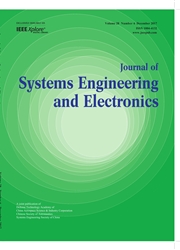

 中文摘要:
中文摘要:
The data-driven fault diagnosis methods can improve the reliability of analog circuits by using the data generated from it. The data have some characteristics, such as randomness and incompleteness, which lead to the diagnostic results being sensitive to the specific values and random noise. This paper presents a data-driven fault diagnosis method for analog circuits based on the robust competitive agglomeration (RCA), which can alleviate the incompleteness of the data by clustering with the competing process. And the robustness of the diagnostic results is enhanced by using the approach of robust statistics in RCA. A series of experiments are provided to demonstrate that RCA can classify the incomplete data with a high accuracy. The experimental results show that RCA is robust for the data needed to be classified as well as the parameters needed to be adjusted. The effectiveness of RCA in practical use is demonstrated by two analog circuits.
 英文摘要:
英文摘要:
The data-driven fault diagnosis methods can improve the reliability of analog circuits by using the data generated from it. The data have some characteristics, such as randomness and incompleteness, which lead to the diagnostic results being sensitive to the specific values and random noise. This paper presents a data-driven fault diagnosis method for analog circuits based on the robust competitive agglomeration (RCA), which can alleviate the incompleteness of the data by clustering with the competing process. And the robustness of the diagnostic results is enhanced by using the approach of robust statistics in RCA. A series of experiments are provided to demonstrate that RCA can classify the incomplete data with a high accuracy. The experimental results show that RCA is robust for the data needed to be classified as well as the parameters needed to be adjusted. The effectiveness of RCA in practical use is demonstrated by two analog circuits.
 同期刊论文项目
同期刊论文项目
 同项目期刊论文
同项目期刊论文
 期刊信息
期刊信息
